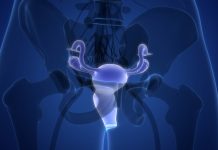The University of Michigan Health Rogel Cancer Center has revealed that changing the dosing schedule for common cancer therapy could greatly reduce greenhouse gas emissions without compromising the patient’s outcomes
The research focused on the immunotherapy cancer treatment drug pembrolizumab, which is commonly distributed every three weeks at a standard dose of 200 milligrams.
By analysing 7,813 veterans treated through the Veterans Health Administration, researchers estimated the environmental impact of this frequent cancer treatment dosing. This includes carbon dioxide emissions from patient transportation, drug manufacturing, and medical waste from needles, tubing, and bags used during treatment.
Alternative solutions to reduce carbon dioxide emissions
The study explored two alternative solutions: administering 400 milligrams every six weeks, a regimen approved by the FDA, and adjusting cancer treatment doses based on patient weight, as initially approved by the FDA.
Both alternatives are believed to achieve similar cancer outcomes to the standard three-week dosing.
Extending the treatment interval to every six weeks would reduce the number of infusions by 15,000, equating to 15,000 fewer trips to the clinic and 15,000 fewer instances of medical waste.
15,000 fewer trips to the clinic and 15,000 fewer instances of medical waste
This change alone could cut greenhouse gas emissions by 200 tons annually within the VHA system.
Dr. Garth W. Strohbehn, assistant professor of internal medicine at Michigan Medicine and study author, highlighted the cumulative impact of these seemingly minor decisions. “As providers, every time we’re with a patient, we’re faced with this litany of decisions that both we and the patient have to make, ” he said.
More deaths due to greenhouse gas emissions than cancer?
The study further examined the broader impact of reduced emissions on climate change and public health. The model predicts that continuing with the current dosing regimen could result in approximately three additional deaths per year by 2100 due to increased greenhouse gas emissions.
“There will more than likely be folks completely uninvolved in cancer care who are harmed by choosing to dose this medicine the way that we do. It doesn’t need to happen,” said Dr. Strohbehn, who is also a member of the U-M Institute for Healthcare Policy and Innovation.
The research suggests that patient transportation is the largest contributor to emissions, suggesting that less frequent cancer treatments could not only benefit the environment but also improve patients’ quality of life by reducing hospital visits. Weight-based dosing could also lead to significant cost savings for the VHA by reducing the total amount of the drug used.
Dr. Strohbehn emphasised the importance of reflecting on current practices. “I think there’s value in holding a mirror up to the conventional system and encouraging self-reflection,” he said.











